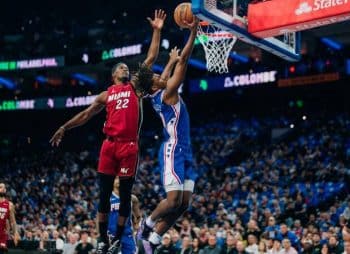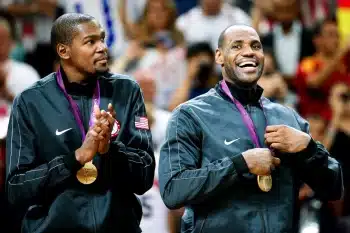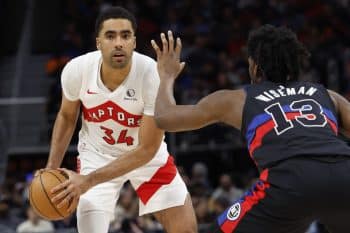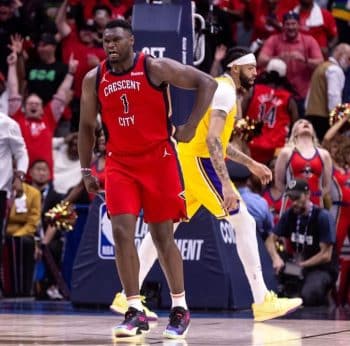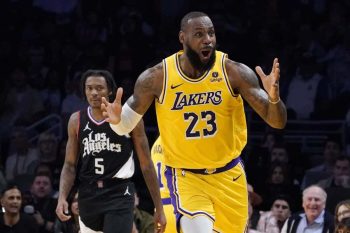NBA
NBA Daily: Cavs and Sixers Executing Opposite Strategies
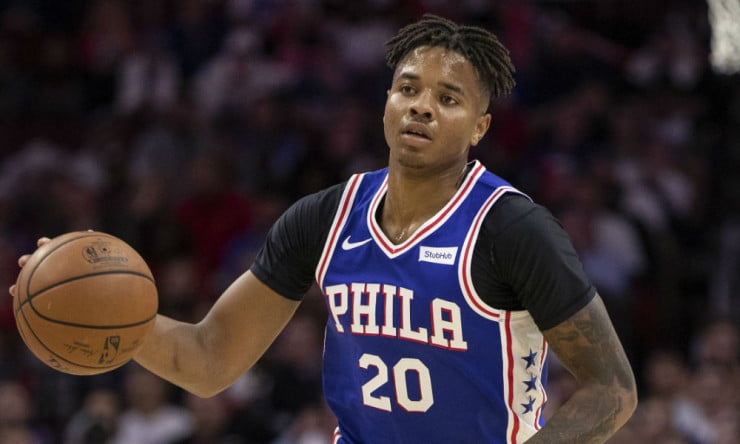
When you draft a talented young guard, how do you acclimate him into the NBA?
Do you throw him to the wolves right away by inserting him in the starting lineup, or do you force him to prove his worth by having him start off the bench? Cleveland and Philadelphia have decided to take opposite approaches with their young guards.
The Sixers have elected Markelle Fultz as their starting point guard – or as one of their starting guards depending on how you view Ben Simmons – while the Cavaliers have elected to have rookie Collin Sexton come off their bench.
Both moves have been seen as peculiar ones to make, but could either one be the correct call? Well, it depends on both the player and the team that he is playing for.
Remember that Markelle Fultz and Collin Sexton are in completely different situations with their respective teams. Fultz is on a team who hopes he can play a pivotal role in their next expected postseason run. Sexton is on a team who hopes he can make an impact no matter which way they go.
In regards to the players themselves, since both are in different circumstances, it’s only fair to take a look at them individually.
Markelle Fultz
Fultz was supposed to be the final puzzle piece of the process in Philadelphia. When the Sixers acquired his rights as the first overall pick in the draft from Boston, nobody questioned why the they made the move. Now, the script has been flipped.
Fultz has been surrounded by nothing but questions since entering the NBA, with the latest one being, “Why is he starting?” It’s a good question. The Sixers proved to be a tough competitor when they started JJ Redick opposite Simmons as the other guard last season. It is mystifying that this season, Philadelphia opted to go with the unknown in Fultz rather than the proven product in Redick.
Many believe that Fultz’s issues last season were mental more than anything else, so the common belief is that guys like him should be worked into the NBA slowly, or, in other words, start their career off by coming off the bench. Coach Brett Brown obviously thought otherwise.
By starting Fultz, Brown has shown him that he has faith in his abilities, which could help Fultz in the long-run. If he had Fultz come off the bench, that could potentially be very hard on the former No. 1 pick’s psyche. By having him play with the starters on a team that hopes to go far into the playoffs this year, Brown has shown Fultz that he can play with the big boys. The confidence boost Fultz gets from that could take him a long way.
That doesn’t mean it’s all hunky-dory from here. If Fultz fails to prove himself in the starting lineup, then it may not be long until Brown re-inserts Redick into the starting lineup, which would not be good for his confidence. The biggest challenge is that he plays next to Simmons, a non-shooter who needs the ball in his hands to be effective. In order for Fultz to work well with Simmons, he has to prove himself as a capable shooter off the ball.
So far, leading up to last night, the returns from Fultz have not been great.
Game One vs. Boston: Five points, two assists, three turnovers on 2/7 shooting in 24 minutes
Game Two vs. Chicago: 12 points, five assists, six rebounds on 5/15 shooting in 32 minutes
Game Three vs. Orlando: Eight points, seven assists, four rebounds on 4/11 shooting in 23 minutes
And this nugget from Zach Lowe will make anyone squirm.
One of the stats I'll be checking every few days. pic.twitter.com/DSawyrjYdj
— Zach Lowe (@ZachLowe_NBA) October 22, 2018
Tuesday night, though, Fultz put up his best stat line against Detroit. In just 21 minutes, Fultz put up 13 points on 6-for-9 shooting, including a deep ball and six rebounds. If that’s a sign of things to come, then the Sixers will make good on their strategy with Fultz. Some will call it slow, but as anyone in Philadelphia will tell you, it’s a process.
Collin Sexton
As of right now, Sexton is supposed to be the future of the Cleveland Cavaliers. Following LeBron James’ departure and being basically the last remnant of the Kyrie Irving trade, Sexton is believed to be the heir apparent in “The Land.” In order to be that, he has to start from the bottom up.
Sexton had an encouraging Summer League performance in Las Vegas. The speedster’s skillset was on full display, as he averaged 19.6 points on 43 percent shooting along with 3.6 rebounds and 3.4 assists. His shot form didn’t look the smoothest, but Sexton looked every bit like the young stud Cleveland had hoped he would be.
Even with that, the Cavaliers have elected to have Sexton come off the bench to prove that he can be a starter in this league. Although somewhat surprising, Sexton is playing next to experienced players young and old – such as George Hill, Jordan Clarkson, Rodney Hood and, potentially, J.R. Smith.
While making sure the rookie gets a fair amount of burn will be important, letting him know where his place is as a first-year player could actually show him that his career won’t just be handed to him. By doing this, it pushes Sexton to show the Cavaliers what he’s made of. There are a fair number of players who come into this league entitled to a starring role.
Unlike Philadelphia, Sexton appears to have no mental hurdles so far since entering the NBA. His biggest challenge may not be about anything he can do, but what his team does. Cleveland enters as a team that could either try for the playoffs or start from scratch. If they don’t show any improvement from their 0-3 start to the season, then they may not have a choice.
So far, Sexton has shown flashes but looks like he will be a work in progress.
Game One vs. Toronto: Nine points, three rebounds, four turnovers on 2/7 shooting in 18 minutes
Game Two vs. Minnesota: 14 points, two rebounds on 6/9 shooting in 23 minutes
Game Three vs. Atlanta: Four points, two assists on 2/11 shooting in 28 minutes
His outputs have been uneven, but the season is still young for him. Cleveland is just trying to work out the kinks of their squad. Expect Sexton to gradually earn a bigger role as the season continues. Hopefully, with a little more experience, he should continue to grow as a player.
At the end of the day, neither strategy is right or wrong. The player ultimately decides if his team made the right move by how he responds to the way he’s used. For all we know, Sexton and Fultz may be better served if they’re put in the others’ position rather than the one they are in now. It’s important that, since the season is still young, both Philadelphia and Cleveland remain patient. Even if Fultz and/or Sexton prove to be a work in progress, drawing quick conclusions on them could be a poor decision.
Teams have regretted giving up on young point guards early. In 1997, the Celtics drafted a young floor general out of Colorado by the name of Chauncey Billups with the third overall pick. Billups’ numbers were okay for a rookie – 11.1 points and 4.3 assists per game on 39 percent shooting and 34 percent from three – but clearly weren’t impressive enough for Pitino, as the rookie was traded mid-season to Toronto. Billups may not have fully found his stride until he got to Detroit four years later, but one can’t help but wonder what could have been had Billups gotten to play with Paul Pierce.
Some young players are ready right away, while others need some time to get up to speed. The season is still young and there’s plenty still left unknown. For now, neither Philadelphia nor Cleveland should pull the plug so hastily, though they may decide to change a few things if their strategies don’t work. The best move for them is to keep moving forward with what they have because, if they don’t, they may wind up in the same boat as Boston after they traded Billups.
Full of endless regret.
